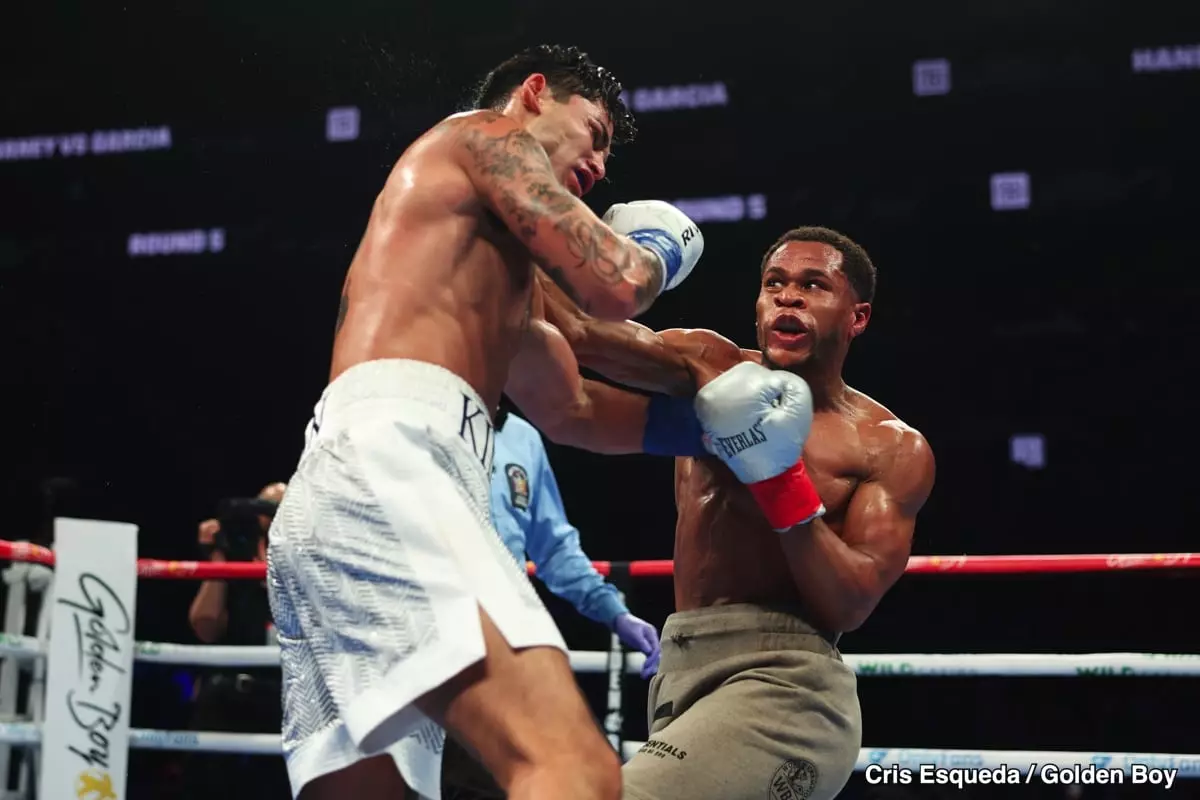In the world of boxing, the psychological impact of a significant defeat can be just as devastating as the physical toll it takes. Devin Haney, who faced a harsh setback against Ryan Garcia last April, finds himself at a crossroads. Promoter Eddie Hearn has recently suggested that Haney should prioritize a comeback fight at a catchweight between 140 and 147 pounds before the year ends. This recommendation is largely rooted in concern for Haney’s mental and physical readiness to re-enter the ring after such a punishing loss.
Haney’s bout with Garcia illustrated not just his technical deficiencies but also left him emotionally spent—a state that could hinder performance in any subsequent fights. The defeat was particularly brutal, sapping his confidence along with his stamina, which is why Hearn firmly believes that Haney should avoid challenging elite welterweights until he regains his footing within the sport.
Hearn has ruled out a potential clash with IBF light welterweight champion Liam Paro, especially considering the stringent rehydration limits imposed by the IBF. Haney’s tendency to rehydrate to approximately 165 pounds post-weigh-in means he would struggle to meet the required 150 pounds, making such a bout impractical. Furthermore, Hearn’s guidance points towards a desire to minimize risk for Haney. He emphasizes the importance of re-establishing momentum without facing high-caliber opponents too soon, advocating for a “tune-up” fight instead.
This cautious approach is vital. Haney is at risk of being outclassed again if he were to face top-tier fighters while still emotionally reeling from the Garcia bout. It’s essential for him to engage in a less demanding match that facilitates recovery and reconstructs his confidence. This “easy fight” strategy is not about lowering aspirations but rather about providing a structured avenue for growth and rehabilitation.
Hearn further articulates that waiting too long—potentially until Ryan Garcia’s suspension concludes in April—would be counterproductive for Haney. The suggestion is clear: action is necessary to keep Haney sharp, and his return can’t be delayed. Engaging in competition is fundamental not only for skill maintenance but also for emotional healing. An immediate return to the ring against an aggressive puncher like Garcia could be perilous, especially when considering Haney’s less pronounced power.
Moreover, the welterweight division is brutal, populated with fighters who possess knockout ability. Without the requisite chin required to withstand significant damage, Haney’s chances dwindle against such opponents. Hearn’s advice reflects not just a prudent demand for strategy but a personal investment in Haney’s career.
Eddie Hearn’s insights into Haney’s situation underline the importance of mental and physical health in boxing. Strategic decisions can shape a fighter’s trajectory post-defeat, and Haney’s best path forward may well involve an initial return to the ring that prioritizes recovery and readiness over immediate high-stakes competition. By finding an adequate balance between mental restoration and competition, Haney can work towards revitalizing his career, setting the stage for future successes in the boxing arena.

